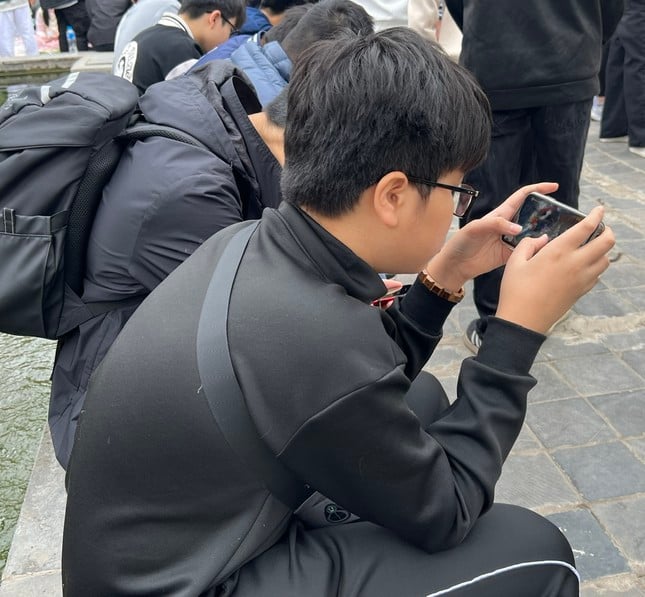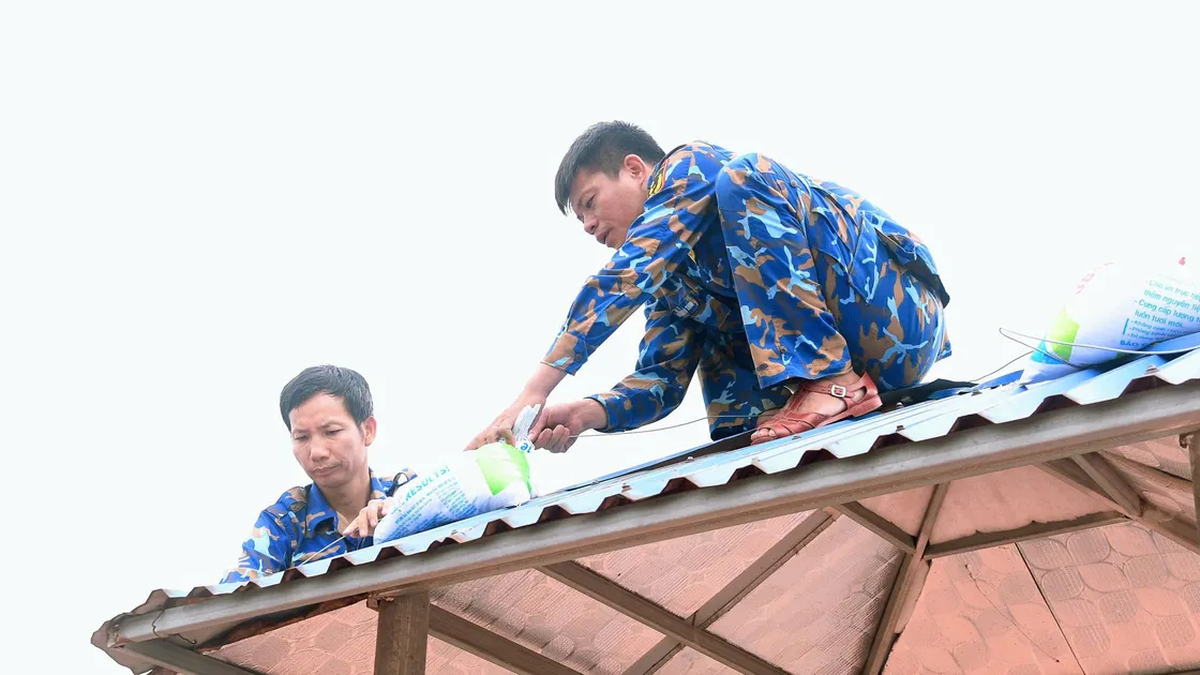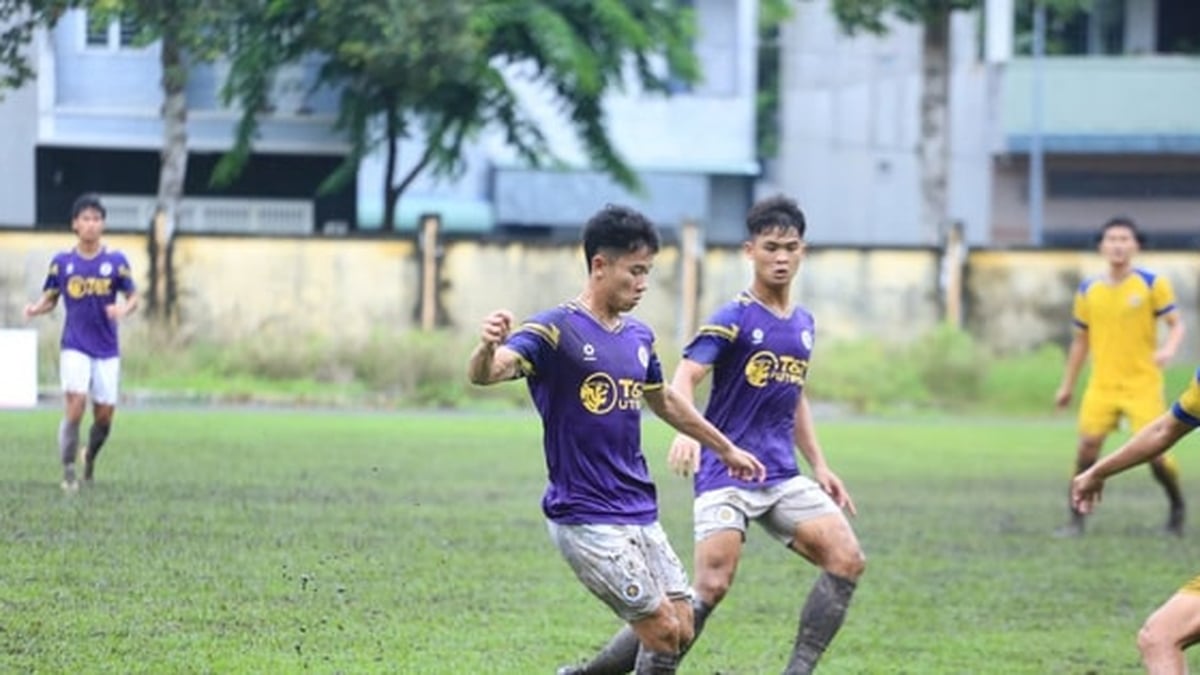In May 2025, the Ministry of Education and Training issued a draft regulation on forms of rewards and discipline for students to replace Circular 08 issued nearly 40 years ago.
The new point of the draft is that student disciplinary measures are more lenient than before.
Specifically, in primary school, if students make mistakes, teachers only give them a warning and ask them to apologize. Students at other levels are only given warnings, criticisms and asked to write a self-criticism when they make mistakes. All forms of criticism such as criticism in front of the class, school or suspension are eliminated.
Circular 08 of the Ministry of Education and Training issued from 1988 to present, in which the forms of discipline stipulate the following levels: Reprimand in front of the class, reprimand before the school disciplinary council, warning in front of the whole school and expulsion for one week, expulsion for one year.
The Ministry of Education and Training has issued a draft regulation on forms of rewards and discipline, in which disciplinary measures for students who violate regulations are reduced compared to current ones. |
The circular clearly stipulates that students will be disciplined for the following mistakes: Absent from school without permission, not memorizing lessons, swearing, smoking, copying, having an uncultured attitude or unethical behavior towards teachers, causing disunity, not reporting to the school the wrongdoings of friends that you know about, stealing personal belongings, skipping school, quarreling, fighting, etc.
Sorry is not enough
With the new regulations in the draft, Ms. Tran Thi Huong, Principal of Van Bao Primary School, Ha Dong District (Hanoi) said that primary school students are at the age of forming the foundation of their qualities, so it is appropriate to focus on formsof education to train and shape them, so not applying harsh forms of discipline is appropriate. Even in testing and evaluating students at this level, it is also required, reducing pressure on students.
However, according to Ms. Huong, in primary schools, there are also special cases and situations where simply reminding and asking for an apology is not enough. For a long time, when students repeatedly commit a mistake, teachers often ask them to report the incident and promise not to repeat it to help them remember it longer.
“For children, when they commit a violation, if adults only remind them and ask them to apologize many times, they can easily become intolerant. Sometimes, students will think that they have violated the rules but have not been punished by the teacher, so they are not afraid,” said Ms. Tran Thi Huong.
To discipline students, from the beginning of the school year, schools often announce regulations for students to follow and at the same time have movements of "Speaking good words, doing good deeds", teaching students to love, share with each other as well as respect teachers, grandparents, and parents. However, there will still be cases where students violate regulations and are disciplined and have measures to handle.
In primary school, each homeroom teacher teaches a class from morning to afternoon, so when problems arise with students, they are easy to detect. In secondary and high school, each subject has a teacher, and students are at a rebellious age and know how to cover for each other, so it is more convenient to have specific instructions for cases of violations of regulations to serve as a deterrent.
Ms. Huong believes that educating a student’s character and behavior must be trained and shaped from a young age and requires the coordination between the school and the family to be effective. In fact, when some students do not take notes or do not do their homework, the teacher keeps them in class for 5-7 minutes to finish their homework before letting them go home, but some parents are upset about that.
The principal of another primary school in Hanoi told a story about a fifth grader who, out of anger at a classmate, ran into the bathroom and kicked the toilet bowl. After the teacher discovered the incident, the student kept denying his mistake until he admitted it.
This principal said that although the school did not require the family to make repairs, with the vandalism of the public, a stronger measure than asking for an apology was clearly needed.
In addition, due to being naughty, students often commit violations such as: using water hoses to spray each other in the bathroom, breaking school windows and light bulbs with soccer balls, students swearing, cursing...
“Therefore, even though they are at primary school age, we still hope that the Ministry of Education and Training will adjust the form of discipline to be more deterrent and educationally effective. Currently, many families spoil their children, and at school and in class there is no reasonable form of discipline, which can easily create students who do not know the value of right and wrong,” said the principal.
Make it difficult for teachers
In fact, children from families with strict parents behave differently from those who are pampered.
The school also regularly organizes life skills education sessions, teaching children about love and morality. After the program, many students understand and show changes in behavior, but only a few days later, they return to their old ways.
In recent years, when schools have applied the “discipline without tears” method, teachers have had more difficulty managing their classrooms. In a family with only 2-3 children, each child has shown a different personality, and schools with thousands of students, if there are no strict disciplinary measures, will find it difficult to cultivate discipline and bring about effective teaching and learning.
There are students who often quarrel, beat their friends, dye their hair red or blue; gossip online, form cliques that affect their friends' morale, skip school, steal money from their friends... In these cases, teachers, depending on the situation, discuss privately, invite parents to talk to find a solution to coordinate education, but then they still reoffend.
Typically, there are cases where a student can cause trouble and beat up a classmate 2-3 times in one semester. The school invites him to warn him, promises not to repeat the offense, but then he continues to violate the rules.
"Although there are very few cases, it has happened in reality, causing headaches for both teachers and school administrators. If there is no effective solution, it will make things difficult for teachers," said the principal.
Meanwhile, Dr. Nguyen Tung Lam, Chairman of the Board of Dinh Tien Hoang High School (Hanoi) and an educational psychology expert, supports regulations to reduce disciplinary measures for students while applying humane educational measures.
Dr. Lam shared that in the past, when schools applied the form of expulsion to students who repeatedly violated discipline according to Circular 08, he was very concerned. The establishment of Dinh Tien Hoang School in 1989 was also aimed at opening its arms to welcome "special" students to the school for education. Mr. Lam believes that students violating regulations is normal, teachers need to patiently point out and correct students' mistakes so that they can gradually improve.
He also agreed that there should be regulations on student discipline, but it must be considered a method to educate students to recognize their mistakes and correct them, not as a punishment for violations.
When students commit serious violations, the maximum suspension of about 2 days should still be applied.
“However, suspension does not mean that during those two days, students must stay at home or be pushed out onto the street, but must still go to school to reflect on their mistakes and come up with solutions to correct them. For example, the school can punish students by making them do community service or clean up the classroom to remember their mistakes,” said Mr. Lam.
In addition to discipline, Mr. Lam also said that teachers and schools should prescribe forms of rewards, encouragement, and motivation for students to strive so that they can clearly see and appropriately praise and discipline them.
Ha Linh
Source: https://tienphong.vn/giam-hinh-thuc-ky-luat-giao-vien-lo-kho-xu-ly-hoc-sinh-ca-biet-post1741677.tpo




























![[Photo] National Assembly Chairman Tran Thanh Man visits Vietnamese Heroic Mother Ta Thi Tran](https://vphoto.vietnam.vn/thumb/1200x675/vietnam/resource/IMAGE/2025/7/20/765c0bd057dd44ad83ab89fe0255b783)






































































Comment (0)